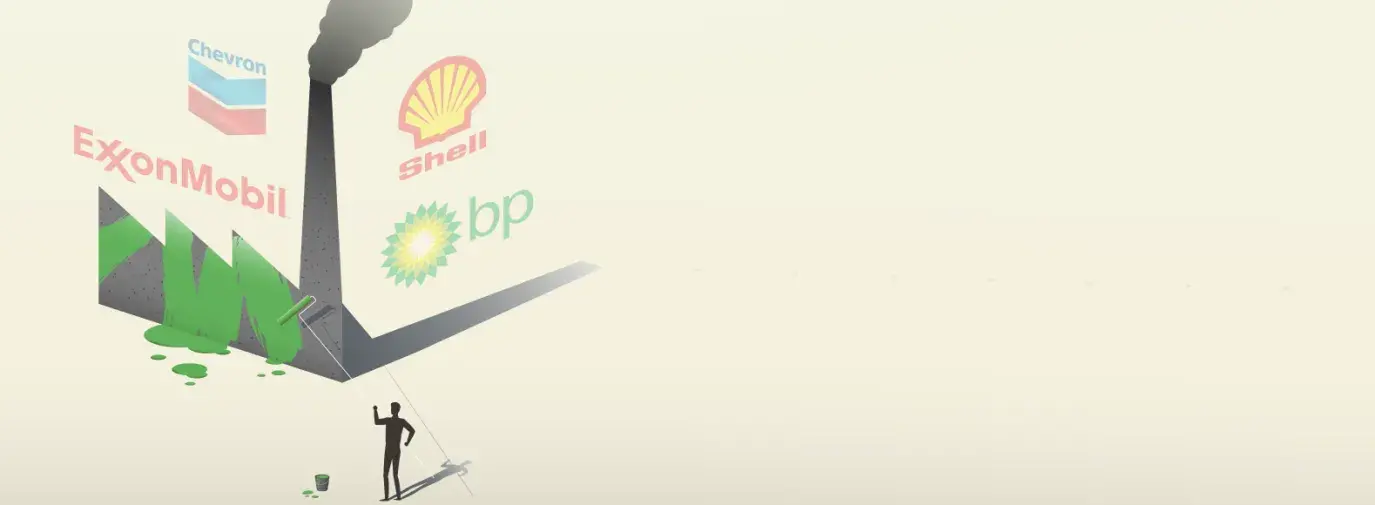
1977
Exxon researchers determined that the burning of fossil fuels emits greenhouse gases. These human-caused emissions would warm the planet and have grave consequences. James Black wrote an internal briefing paper called “The Greenhouse Effect.”
1990
The first Intergovernmental Panel on Climate Change (IPCC) Assessment Report illustrated the worldwide consequences of climate change and the importance of international cooperation in addressing it.
2001
ExxonMobil asked President George W. Bush to fire Robert Watson, climate scientist, as chair of the IPCC. Under Watson, the IPCC released several reports linking human activity to climate change.
2004
British Petroleum (BP) launched its “carbon footprint calculator” so individuals could assess how their daily lives are responsible for climate change. This was a public relations campaign to promote the narrative that climate change is caused by peoples’ choices, not BP.
2015
InsideClimate News released the first exposé on ExxonMobil’s knowledge, denial, and misdirection of climate change risks.
2023
A state court in Oregon filed a lawsuit against Exxon, Chevron, and other fossil fuel companies for a 2021 heatwave that took hundreds of lives in the region, stating that the heatwave was a “direct and foreseeable consequence” of the burning of fossil fuels.
Fossil fuel companies have worked for decades to downplay the effects of burning fossil fuels on people and the planet so that they may turn a profit. They have run years-long disinformation campaigns to improve the public image of fossil fuels and their brands. But no matter what image they may paint for themselves, one (peer-reviewed, scientific) fact has remained the same: fossil fuels must stay in the ground to avert the climate crisis.
Fossil Fuel Companies Are in the Greenwashing Business
In the 1980s, Chevron televised a series of commercials and print ads showing Chevron employees protecting wild animals like foxes, bears, butterflies, and more. This ad campaign, titled “People Do,” sought to convince the public of Chevron’s good conservation deeds—and it was quite effective, winning awards and becoming a case study at Harvard Business school.
But for environmentalists, the People Do campaign represents a perfect case of greenwashing. Not only did Chevron invest more in the ads than the conservation projects, but they were misleading—including that several conservation projects were requirements by law, not initiatives of Chevron.
In the early 2000s, British Petroleum (BP) popularized the term “carbon footprint,” as part of another ad campaign. In 2004, BP released its carbon footprint calculator and provided “solutions” such as going on a low-carbon diet—essentially putting the onus of solving climate change on buyers instead of BP taking responsibility for its product. Additionally, BP funded anti-climate change messaging and opposed climate legislation. The company’s failures were laid bare six years later when the Deepwater Horizon oil spill (also referred to as the BP oil spill) poured an estimated 210 million gallons of oil into the Gulf of Mexico.
People Power
Luckily, people took notice. In the 1990s, Green America and many allies launched campaigns to address climate issues, such as promoting solar energy and opposing new coal-fired power plants. In 2008, 350.org was founded to build a 100% renewable energy future. In 2017, Sunrise Movement exploded on the scene with the Green New Deal. And in 2018, Greta Thunberg inspired youth around the world to demand climate action from politicians.
These collective voices shed light on the disinformation campaigns that Big Oil has tried to hide behind all these years. Legal battles have begun as well—the city and county of Honolulu sued Sunoco LP, ExxonMobil, and others in 2020 for flooding damage to beaches, roads, and public drinking water. The first youth climate lawsuit was won in Montana in 2023, with the court agreeing that by failing to address climate change, state leaders are in violation of the state constitution. More than two dozen other cities and states are suing, too.
Steps to Take Against Big Oil
Call Out Greenwashing
Big Oil has decades of greenwashing practice. Exxon’s latest hypocrisy is claiming that it will be climate neutral in its operations—but it’s the oil burning causing climate change, not just the drilling. Call out the hypocrisy when you see it, whether in conversation with friends, a post tagging the company on Instagram, X, or Facebook, or writing a letter to a local newspaper or news site. When big oil companies are exposed as greenwashers, their ads lose luster.
Switch Your Bank
Fossil fuel companies are in pursuit of profit and much of that is possible thanks to loans and financing from big banks. JPMorgan Chase has funneled more than $160 billion into fossil fuels since 2020, according to Fossil Banks No Thanks. However, banks run on the interest made on deposits and loans. Breaking up with your megabank—such as Citi, Wells Fargo, and Bank of America—and putting your dollars in a credit union or community development financial institution (cdfi) is a divestment from rampant fossil fuel financing.
Get the full picture of which banks are financing fossil fuels and take action with local groups that are pushing big banks to divest, such as school and community groups.
Vote
Fossil fuel companies cannot vote, but they donate millions to politicians and lobby against environmental protections. While most folks do not have the wherewithal to sue Big Oil, we do have the power to vote. Together, our voices can change the status quo. Whether we vote in elections for candidates with a climate change platform, or speak up at city hall, or volunteer to get the vote out—democracy is our tool to develop legislative change.
Find Your Best Next Step
Whether you choose to go vegan, bike or take public transit instead of a car, or grow your own Climate Victory Garden, taking steps to create change on small and large scales will make you feel good and grow your climate community. Consider these steps:
- Invest in renewable energy at home with help from the Inflation Reduction Act
- Do your research by learning about sustainable buzzwords or anti-ESG investing myths
- Shopping sustainably
- Through it all, make sure that you're taking care of your own mental health







